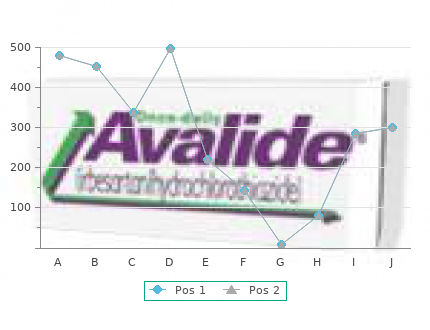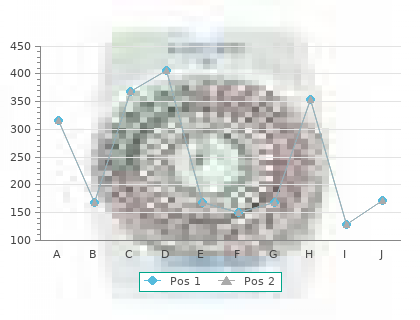Cialis
By V. Derek. Campbellsville University.
A physician who specializes in internal med- interstitial Pertaining to being between things purchase cialis 2.5 mg mastercard xarelto impotence, icine is referred to as an internist buy cialis 2.5 mg otc impotence meds. Subspecialties of especially between things that are normally closely internal medicine include allergy and immunology, spaced. The word interstitial is much used in medi- cardiology (heart diseases), endocrinology (hor- cine and has specific meaning, depending on the mone disorders), hematology (blood disorders), context. For instance, interstitial cystitis is a specific infectious diseases, gastroenterology (diseases of the type of inflammation of the bladder wall. Interstitial gut), nephrology (kidney diseases), oncology (can- radiation involves placing radioactive material cer), pulmonology (lung disorders), and rheumat- directly into a tumor. For example, a person taking the anticoagulant warfarin (brand name: Coumadin) interventional radiology See radiology, would regularly have blood tested to measure the interventional. Intervertebral discs form the intervertebral absorbs any remaining water and forms the stool, joints and provide protection and shock absorbing which is sent to the rectum for elimination. The center of a disc, called walls of the large intestine are muscular and con- the nucleus, is soft, springy, and receives the shock tract to move material along its length. The inter- intestine, small The tubelike organ that receives vertebral discs are susceptible to degenerative the products of digestion from the stomach. It has changes associated with wear and tear or aging, and three parts: the duodenum, the jejunum, and the a disc can herniate or rupture. This term comes digestive enzymes, and it also receives bile from the from the action of the nuclear tissue when it is liver. The ileum ends sue located in the center of the disc can be placed with the ileocecal valve, which prevents food passed under so much pressure that it can cause the annu- into the large intestine from traveling back into the lus to rupture. The walls of the small intestine are tured, it may create pressure against one or more of muscular and contract to move digested food along the spinal nerves, which can cause pain, weakness, its length. Common offenders include milk products, wheat intestinal obstruction Blockage of the intestine and other grains that contain gluten, and foods that by infolding (intussusception), malformation, tend to cause intestinal gas, such as cabbage and tumor, digestive problems, a foreign body, or beans. Symptoms of intestinal obstruction allergy, but it does not involve a histamine response can include crampy abdominal pain, lack of ability against the food. Treatments include avoiding the to normally eliminate feces, and eventually shock. Abdominal X-rays may suggest intestinal obstruction, but a barium enema may be needed to intolerance, lactose See lactose intolerance. Intracranial hemorrhage can be caused by the nerves that control intestinal muscles or to other many conditions including head injury, ruptured causes. It diarrhea is diarrhea that can’t be stopped, even with consists of the small and large intestines and medication, and intractable pain is pain that can’t be extends from the stomach to the anus. For example, an intrader- tion enter the caecum through the ileocecal valve, mal injection is given into the skin. The blood is recovered in a ster- often used to diagnose allergies and to test cellular ile fashion and stored in a collection bag. For exam- parent structure at the front of the eye, to flatten the ple, a blister forms fluid in the intraepithelial layer cornea and thereby reduce the degree of nearsight- of the skin. The ring is placed in the corneal stroma, the middle of the five layers of the cornea. For example, an which surrounds the brain and spinal cord, to kill intramuscular medication is given by needle into the cancer cells. For example, intraocular tive device that is inserted into the uterus by a pressure is the pressure within the eye. In retardation is associated with an increased risk of acute angle-closure glaucoma, intraocular pressure illness and death in the newborn period. In chronic glaucoma, there is a gradual venous antibiotics are antibiotics in a solution that imbalance between the production and removal is administered directly into the venous circulation (resorption) of the fluid in the back part of the eye, via a syringe or an intravenous catheter (tube). As the intravenous immunoglobulin A sterile solu- condition progresses, the infant becomes weak and tion of concentrated antibodies extracted from then shows signs of shock, including pale color, healthy people that is administered directly into a lethargy, and sweating. The ders of the immune system or to boost the immune cause of intussusception is not known, although response to serious illness. In older children or adults, the presence of polyps or a tumor may trig- intravenous pyelogram An X-ray of the kidneys ger intussusception.


And although for some of these works and areas our evidence is restricted to a few lines buy cheap cialis 20 mg on-line erectile dysfunction after radical prostatectomy treatment options, it nevertheless gives us a good idea of the sheer scope and extent of their scientific interests and literary activity buy cialis 2.5 mg line impotence help, which we simply cannot gain in the case of the writers of the Hippocratic Corpus. One such ‘non-Hippocratic’ medical author was Diocles of Carystus, whose importance in antiquity was rated so highly that he was given the 28 See van der Eijk (2000a) and (2001a); see also Manetti (1999a) and Orelli (1998). He practised in the fourth century bce, and although we know very little of his life, we can safely assume that he was one of the most promi- nent medical thinkers of antiquity. He clearly had a keen interest in ‘the phenomena’ and in the practical aspects of medical care, and he rated the results of long-term medical experience very highly. Yet at the same time Diocles was known for his theoretical and philosophical outlook and for his tendency to build his medical views on a general theory of nature. There are good reasons to be- lieve that he was well in touch with the medical and philosophical thinkers of his time, that he knew a number of the Hippocratic writings and that he was familiar with, and to, Aristotle and Theophrastus. Furthermore, he appears to have positioned himself prominently in the intellectual debates of the fourth century, and to have played a major role in the communica- tion of medical views and precepts to wider audiences in Greek society by means of highly civilised literary writings in the Attic dialect. The basis for his fame may lie partly in the impressive range of subjects he dealt with, the almost encyclopaedic coverage of the subject of medicine and allied sciences such as botany, biology, and possibly mineralogy and meteorology, the considerable size of his literary production and the stylistic elegance his work displayed. But a further possible reason may have been Diocles’ philo- sophical and theoretical orientation and his tendency to relate his medical views to more general theoretical views on nature (see frs. For from the remains of his work Diocles emerges as a very self-conscious scientist with a keen awareness of ques- tions of methodology, a fundamental belief that treatment of a particular part of the body cannot be effective without taking account of the body as a whole (fr. Diocles’ use of notions such as pneuma, humours and elementary qualities, his use of inference from signs 29 For a collection and discussion of the evidence and an account of Diocles’ views and historical importance see van der Eijk (2000a) and (2001a), from which the following paragraph is adapted. It must have been these characteristics which prompted later Greek medical writers to reckon Diocles among the so-called Dogmatist or Rationalist physicians, who preferred to base medicine on a proper, theoretical and philosophical foundation, and who wanted to raise medicine from a craft to a systematic and explanatory intellectual discipline that obeyed the strict rules of logical coherence. Nevertheless, as we have seen, there was also a tradition in antiquity that represented Hippocrates as being hostile to philosophy, indeed as the one who liberated medicine as an empirical, practical art aimed at treatment of diseases from the bondage of theoretical philosophical speculation (cf. And there is that side to Diocles as well; for, as we shall see in chapters 2 and 3, several fragments testify to Diocles’ awareness that the use of theoretical concepts and explanatory principles constantly has to be checked against the empirical evidence, and that their appropriateness to individual circumstances has to be considered time and time again in each individual case. Diocles’ reputation as the first to write a handbook on anatomy, in which he provided detailed descriptions of all the parts of the human body including the female reproductive organs, and his status as one of the leading authorities in the area of gynaecology, as well as the fame of some of his surgical instruments and bandages all suggest that we are dealing not only with a writer, communicator and thinker, but also with an experienced practitioner. Yet whatever the title of ‘younger Hippocrates’ means, it certainly does not imply, and perhaps was not meant to suggest, that Diocles faithfully followed in the footsteps of the Father of medicine in all respects. For, as we will see in chapter 2, several fragments of his works bear out that, whatever the authority of Hippocrates may have been in Diocles’ time, it did not prevent Diocles from taking issue with some ideas and practices that are similar to what is to be found in texts which we call Hippocratic. Diocles can therefore be regarded as an independent key figure in the interaction between medicine and natural philosophy (at least in its epistemological results) in one of the founding periods of Greek science who long exercised a powerful influence on later Greek medicine. Diocles provides an important connection between Hippocratic medicine and Aristotelian science, and he is a major contributor to the development of early Hellenistic medicine, 26 Medicine and Philosophy in Classical Antiquity especially because of his anatomical research and discoveries, his views on physiology, embryology and the role of pneuma, his views on gynaecology, and his development of a theory of regimen in health, food, and lifestyle, thus contributing to the increasing influence of doctors and medical writers on areas such as hygiene, cookery, gymnastics and sports. Apart from Diocles’ more specifically medical views, his relationship to the Hippocratic writers is also manifest in two issues that reflect the ‘meta- medical’ or philosophical nature of his approach to medicine. First, there are the principles of Dioclean therapeutics, which are at the heart of the question about the purposes of medical activity, and especially therapeutic intervention, in the light of more general considerations regarding the eth- ical aspects of medical practice and the question of the limits of doctors’ competence with regard to areas not strictly concerned with the treatment of disease (ch. The Hippocratic writings, and especially the famous Oath, first of all reflect on the duties and responsibilities the doctor has in relation to the patient, for example in articulating such famous principles as ‘to do no harm’, not to cause death, or in advocating confidentiality, self-restraint, discretion, gentleness, acting without fear or favour. Yet, in- terestingly, they also emphasise the need for moral and religious integrity of the practitioner and for correspondence between theory and practice. Furthermore, in the field of dietetics, the Hippocratics’ development of the notions of moderation, ‘the mean’, and the right balance between opposites provided concepts and ways of thinking that found their way into ethical discussions as we find them in Plato and Aristotle; and, paradoxically, their tendency to ‘naturalise’ aspects of human lifestyle such as sexual behaviour, physical exercise, eating and drinking patterns by presenting these in terms of healthy or harmful provided useful arguments to those participants in ethical debates stressing the naturalness or unnaturalness of certain forms of human behaviour. A further issue that occupied the interests of philosophers as well as medical writers like the Hippocratic writers and Diocles was the question of the location of the mind, or the question of the cognitive function of the heart, the blood and the brain (ch. This was a question that later attracted great interest in Hellenistic philosophy, where medical evidence played a major (though by no means decisive) role in the discussion, but the way for this debate was already paved in the medical writings of the fifth century, though in a slightly different context, for in their discussions of disease, the Hippocratic writers frequently also discussed mental illness and other disturbances of the mental, cognitive, behavioural or motor functions of the body. What is striking here is that in many of these cases the authors Introduction 27 do not make a categorical distinction between ‘mind’ and ‘body’: all mental affections are presented as being of a physical nature and having a physical cause. And even those authors who speak about ‘soul’ ( psuche¯ ) as distinct from the body, such as the author of On Regimen, still conceive of the soul as something physical, whose workings and failings can be described in material terms – for example a particular blend of fire and water – and influenced by dietary measures. In this connection, a further major medical writer beyond the Hippo- cratic Corpus must be mentioned. Praxagoras of Cos is usually referred to in the handbooks of the history of medicine mainly for his ‘discovery’ of the difference between veins and arteries, his doctrine of the pulse and his assumption of the so-called ‘vitreous’ humour.


10 of 10 - Review by V. Derek
Votes: 256 votes
Total customer reviews: 256

Detta är tveklöst en av årets bästa svenska deckare; välskriven, med bra intrig och ett rejält bett i samhällsskildringen.
Lennart Lund
